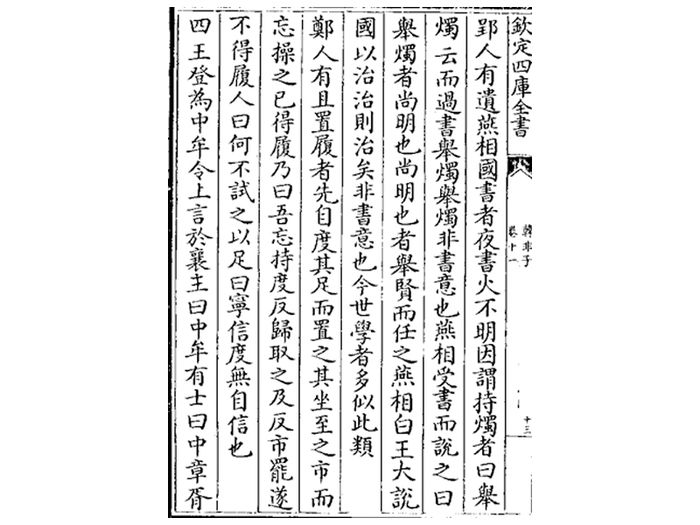(Translation) 2019 鄭人買履
| Primary Source | ||
|---|---|---|
 |
Title | |
| English | A person of Zheng state buys shoes | |
| Chinese | 鄭人買履 | |
| Korean(RR) | ||
| Text Details | ||
| Genre | Ideological | |
| Type | Literature | |
| Author(s) | Han Feizi | |
| Year | Warring States | |
| Source | ||
| Key Concepts | Zhengren | |
| Translation Info | ||
| Translator(s) | Participants of 2019 JSG Summer Hanmun Workshop (Intermediate Training Group) | |
| Editor(s) | ||
| Year | 2019 | |
Original Script
Translation
Student Translation : Emma Bass
Among the Zheng people there was one who was about to buy shoes. First, by himself he measured his foot and placed it on his seat. When he was going to the market he forgot to take it. Having obtained his shoes, he said: "I forgot to take the measurement, I will turn around to go get it." By the time he returned the market was finished, therefore he did not get his shoes. Other people said: "Why don't you try it with your foot?" He said: "I would rather believe my measurement, I do not trust myself."
- Discussion Questions:
What is the significance of the binary he has created between his physical body (trying the shoes on his feet) and his thinking-self (his measurement of his foot)? What is the lesson to be learned from this text?
(YO) As mentioned in class, I think Hanfei might have intended to illustrate his ideal as a Legalist scholar with this allegorical story. Legalists, as a school of thought spun off from Xunzian Confucianism, emphasized the legitimacy of following recent kings (後王) or the current king. This is in contrast to ancient kings (先王), whose rules and methods were embodied in the rites (禮). Xunzi and Legalists tried to justify that recent/current kings were worthy of following, for they carried on the legacy and ideals of the ancient kings (i.e., the continuity of culture and historical memories) and yet ready to correspond to the current, new circumstances and challenges. Law to Legalists was the main tool to deal with the current realities, which could replace the ancient kings' ossified, rigid, and outdated principles of ruling. In this story, the measurement of the foot that the man had and left off is like the rules of the ancient kings (or 禮), whereas the thinking-self of the man is the recent king who is ready to deal with the reality of the foot and the market. It interestingly resembles the ideal of a cognitive (cogito) and independ mind of a modern man.